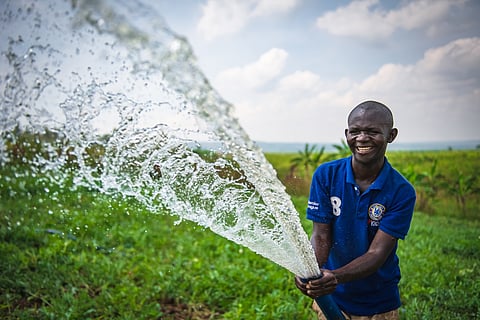

Every era presents its unique challenges, and humanity has a history of rising to meet them. In the past, we confronted famine, plagues, and wars. Now, in the 21st century, the defining challenge of our time is climate change. While international cooperation is not a new concept, addressing climate change is unlike anything humanity has tackled before—its scale, complexity, and impact transcend national borders, demanding a new level of global coordination.
Climate diplomacy emerged as a structured field in the late 20th century, gaining momentum in the 1980s and 1990s with the realization that global warming required collective action. The pivotal moment came in 1992 with the establishment of the United Nations Framework Convention on Climate Change (UNFCCC), which laid the groundwork for future agreements.
The Kyoto Protocol of 1997 was the first legally binding treaty that set emission reduction targets for industrialized nations. However, it had significant limitations—developing countries were exempt, and major emitters like the United States refused to participate. A more inclusive milestone was reached in 2015 with the Paris Agreement, in which 196 countries pledged to limit global warming to well below 2°C above pre-industrial levels, ideally capping it at 1.5°C. Unlike Kyoto, this agreement held all nations accountable, regardless of their level of industrialization.
Despite progress, numerous obstacles hinder meaningful action:
Developed vs. Developing Nations: Wealthy nations, historically the largest emitters, face pressure to provide financial and technological support to developing nations. However, developing nations argue that their right to economic growth and energy access must not be sacrificed in the name of climate policy.
Climate Finance Shortfalls: In 2009 at COP15, developed nations pledged $100 billion annually to help poorer nations adapt to climate change. Over a decade later, that target remains unmet, reinforcing skepticism about the sincerity of wealthier countries in addressing climate justice.
Geopolitical Disruptions: Global tensions, such as the Russia-Ukraine war and the resulting energy crisis in Europe, have led some countries to backtrack on climate commitments. The reopening of coal plants in Germany following its nuclear shutdown highlights the competing priorities between climate action and energy security.
Private Sector Influence: Renewable energy demand has surged, spurring innovation and investment in green technology. However, fossil fuel interests remain deeply entrenched, making systemic change difficult.
While climate diplomacy has made tangible contributions—accelerating the transition to renewable energy, fostering international agreements, and encouraging technological innovation—implementation remains inconsistent.
Many countries fail to meet their nationally determined contributions (NDCs) under the Paris Agreement.
Global emissions continue to rise, putting the 1.5°C target increasingly at risk.
Fossil fuel dependency remains strong, with inadequate action against industries resisting transition.
Moving forward, climate diplomacy must evolve to become more actionable and enforceable. Multilateralism needs strengthening, and climate finance must be expanded to bridge the gaps between pledges and implementation. Some positive steps have already been taken, such as the establishment of a Loss and Damage Fund at COP27, designed to compensate vulnerable nations suffering the worst impacts of climate change.
Regional blocs will also play a more significant role in addressing localized climate challenges. However, without a fundamental shift in global priorities and stronger enforcement mechanisms, current diplomatic efforts may prove insufficient.
The fight against climate change will require persistent, intelligent, and resourceful diplomacy. The choices made today will determine the livability of our planet for future generations. As nations continue to negotiate their climate commitments, only time will tell whether diplomacy can bridge the divide between economic growth and environmental sustainability.